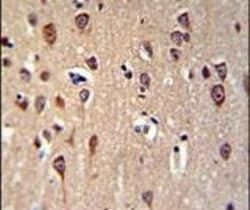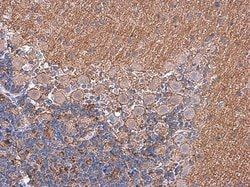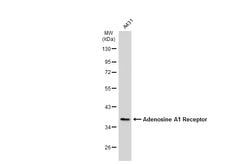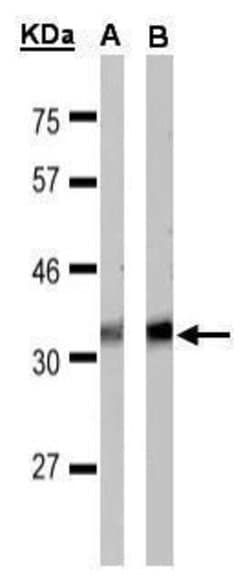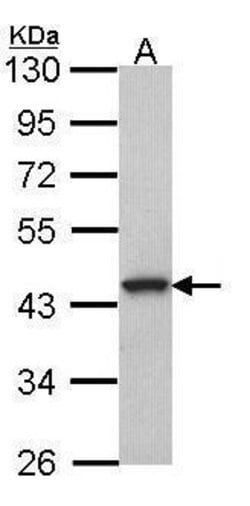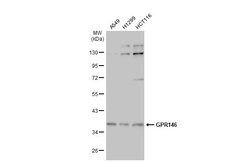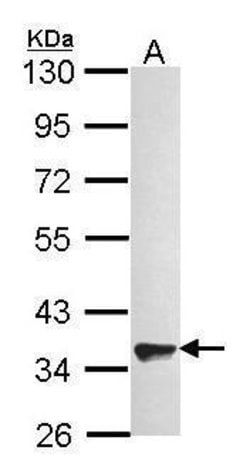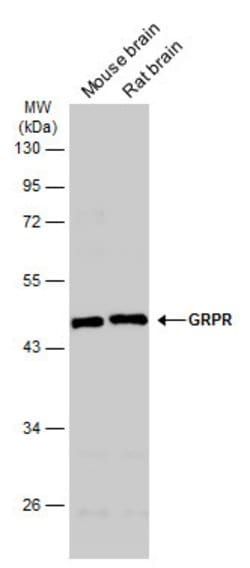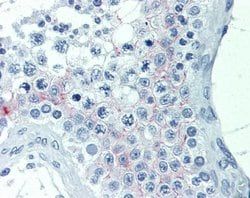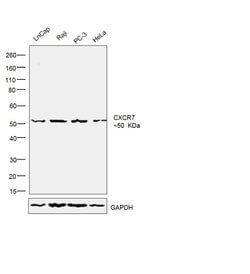GRPR Polyclonal Antibody, Invitrogen™
Manufacturer: Thermo Scientific
Select a Size
| Pack Size | SKU | Availability | Price |
|---|---|---|---|
| Each of 1 | PIPA527073-Each-of-1 | In Stock | ₹ 46,502.50 |
PIPA527073 - Each of 1
In Stock
Quantity
1
Base Price: ₹ 46,502.50
GST (18%): ₹ 8,370.45
Total Price: ₹ 54,872.95
Antigen
GRPR
Classification
Polyclonal
Conjugate
Unconjugated
Gene
GRPR
Gene Alias
BB2; BB2R; bombesin receptor 2; gastrin releasing peptide receptor; gastrin-releasing peptide receptor; GRP receptor; GRP-preferring bombesin receptor; GRPR; GRP-R
Host Species
Rabbit
Purification Method
Antigen affinity chromatography
Regulatory Status
RUO
Gene ID (Entrez)
14829, 24938, 2925
Content And Storage
Store at 4°C short term. For long term storage, store at -20°C, avoiding freeze/thaw cycles.
Form
Liquid
Applications
Western Blot
Concentration
1 mg/mL
Formulation
PBS with 20% glycerol and 0.01% thimerosal; pH 7
Gene Accession No.
P21729, P30550, P52500
Gene Symbols
GRPR
Immunogen
Synthetic peptide corresponding to a region within amino acids 200 and 294 of Human GRPR
Quantity
100 μL
Primary or Secondary
Primary
Target Species
Human, Mouse, Rat
Product Type
Antibody
Isotype
IgG
Description
- Recommended positive controls: HeLaS3, Molt-4, mouse pancreas, mouse brain, rat brain, rat pancreas
- Predicted reactivity: Mouse (100%), Rat (100%), Pig (100%), Rhesus Monkey (100%), Bovine (100%)
- Store product as a concentrated solution
- Centrifuge briefly prior to opening the vial
- Gastrin-releasing peptide (GRP) regulates numerous functions of the gastrointestinal and central nervous systems, including release of gastrointestinal hormones, smooth muscle cell contraction, and epithelial cell proliferation and is a potent mitogen for neoplastic tissues
- The effects of GRP are mediated through the gastrin-releasing peptide receptor
- This receptor is a glycosylated, 7-transmembrane G-protein coupled receptor that activates the phospholipase C signaling pathway
- The receptor is aberrantly expressed in numerous cancers such as those of the lung, colon, and prostate
- An individual with autism and multiple exostoses was found to have a balanced translocation between chromosome 8 and a chromosome X breakpoint located within the gastrin-releasing peptide receptor gene.
